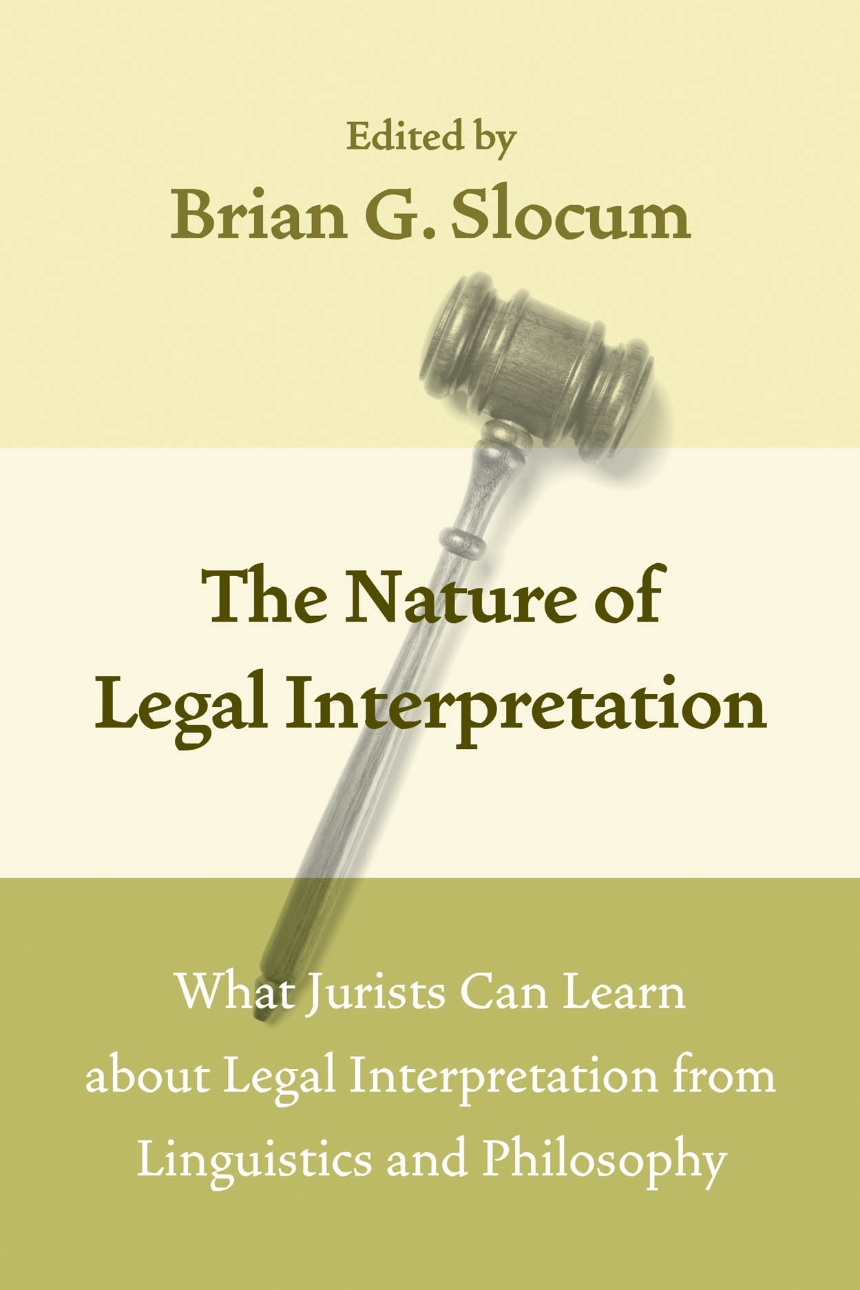The Nature of Legal Interpretation
What Jurists Can Learn about Legal Interpretation from Linguistics and Philosophy
9780226445021
9780226445168
The Nature of Legal Interpretation
What Jurists Can Learn about Legal Interpretation from Linguistics and Philosophy
Language shapes and reflects how we think about the world. It engages and intrigues us. Our everyday use of language is quite effortless—we are all experts on our native tongues. Despite this, issues of language and meaning have long flummoxed the judges on whom we depend for the interpretation of our most fundamental legal texts. Should a judge feel confident in defining common words in the texts without the aid of a linguist? How is the meaning communicated by the text determined? Should the communicative meaning of texts be decisive, or at least influential?
To fully engage and probe these questions of interpretation, this volume draws upon a variety of experts from several fields, who collectively examine the interpretation of legal texts. In The Nature of Legal Interpretation, the contributors argue that the meaning of language is crucial to the interpretation of legal texts, such as statutes, constitutions, and contracts. Accordingly, expert analysis of language from linguists, philosophers, and legal scholars should influence how courts interpret legal texts. Offering insightful new interdisciplinary perspectives on originalism and legal interpretation, these essays put forth a significant and provocative discussion of how best to characterize the nature of language in legal texts.
To fully engage and probe these questions of interpretation, this volume draws upon a variety of experts from several fields, who collectively examine the interpretation of legal texts. In The Nature of Legal Interpretation, the contributors argue that the meaning of language is crucial to the interpretation of legal texts, such as statutes, constitutions, and contracts. Accordingly, expert analysis of language from linguists, philosophers, and legal scholars should influence how courts interpret legal texts. Offering insightful new interdisciplinary perspectives on originalism and legal interpretation, these essays put forth a significant and provocative discussion of how best to characterize the nature of language in legal texts.
288 pages | 6 x 9 | © 2017
Language and Linguistics: Language and Law
Law and Legal Studies: General Legal Studies, Legal Thought, The Constitution and the Courts
Reviews
Table of Contents
Introduction
Brian G. Slocum
Chapter 1. The Contribution of Linguistics to Legal InterpretationBrian G. Slocum
Chapter 2. Philosophy of Language, Linguistics, and Possible Lessons about OriginalismKent Greenawalt
Chapter 3. Linguistic Knowledge and Legal Interpretation: What Goes Right, What Goes WrongLawrence M. Solan
Chapter 4. The Continued Relevance of Philosophical Hermeneutics in Legal ThoughtFrank S. Ravitch
Chapter 5. The Strange Fate of Holmes’s Normal Speaker of EnglishKaren Petroski
Chapter 6. Originalism, Hermeneutics, and the Fixation ThesisLawrence B. Solum
Chapter 7. Getting Over the Originalist FixationFrancis J. Mootz III
Chapter 8. Legal Speech and the Elements of AdjudicationNicholas Allott and Benjamin Shaer
Chapter 9. Deferentialism, Living Originalism, and the ConstitutionScott Soames
Chapter 10. Deferentialism and AdjudicationGideon Rosen
Response to Chapter Ten: Comments on RosenScott Soames
Contributors
Index
Index
